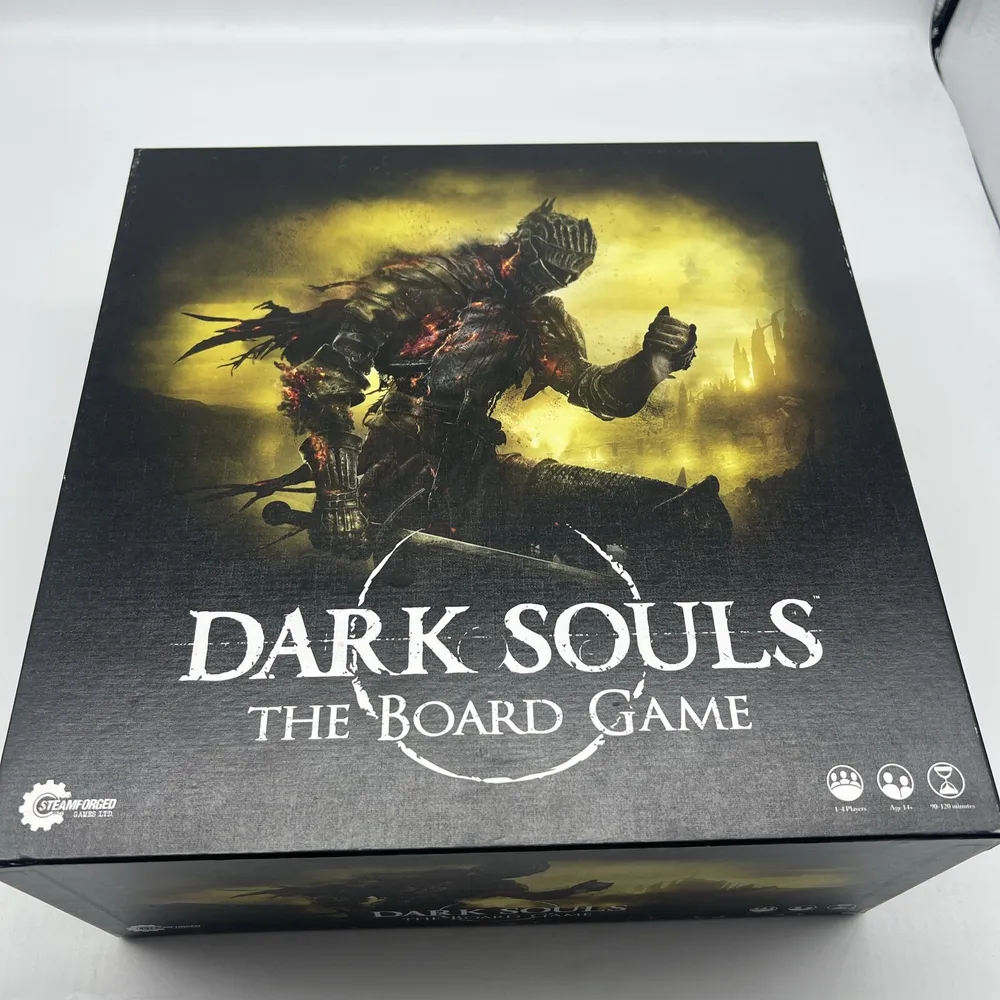Dark Souls: The Board Game (2017)
Dark Souls – The Board Game
“Dark Souls – The Board Game” is a tabletop roleplaying game inspired by the popular video game series, Dark Souls, developed by FromSoftware and published by Bandai Namco Entertainment. The board game was created by Steamforged Games and was successfully funded through a Kickstarter campaign. The game is set in the dark, medieval fantasy world of Lordran, where players take on the role of cursed human characters to discover the fate of undead humans like themselves.
Why is Dark Souls – The Board Game Popular?
The Dark Souls video game series is known for its challenging gameplay, rich lore, and atmospheric world. The board game aims to capture the essence of these elements, providing fans with a unique roleplaying experience that combines adventure, horror, and tactical combat. The game’s popularity stems from its connection to the well-established Dark Souls universe and its ability to offer a new way for fans to engage with the series’ lore and Gameplay Mechanics of Dark Souls – The Board Game.
Game Components of Dark Souls: The Board Game
How To Setup Dark Souls: The Board Game
Setting up the game involves laying down random tiles to create the game board, drawing encounter cards for each tile, and preparing the player boards. Players choose their characters and start at the bonfire checkpoint. The game board is formed by connecting the tiles, which determine the enemies, terrain items, and traps that will appear during the game.
Gameplay Mechanics and Game Objective
Player Experience
The game offers a cooperative experience for 1-4 players, with a strong focus on tactical positioning and combat. Boss battles are particularly tense and dynamic, thanks to the AI card system and the use of Boss Arcs. However, the original version of the game was criticized for its clunky mechanics, unnecessary tokens, and grinding gameplay.
Pros
Cons
Personal Thoughts on Dark Souls: The Board Game
**Dark Souls: The Board Game** is ideal for fans of the video game series and those who enjoy cooperative dungeon crawlers. However, the original version had significant flaws that made it less enjoyable. The revised edition, released later, addresses many of these issues, making the game more balanced and engaging. For those who appreciate tactical combat and the Dark Souls universe, this game can offer a rewarding experience, but it may still be challenging for casual players due to its complexity and occasional reliance on luck.
We are supported by our audience. When you purchase through links on our site, we may earn an affiliate commission, at no extra cost for you. Learn more.

